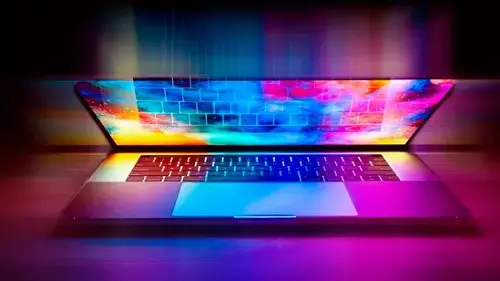
Laptops are a staple in our daily routines, whether for work, study, or entertainment. However, consistent use can lead to a common yet frustrating issue: overheating. An overheated laptop can not only cause sudden shutdowns and lag but may also shorten the lifespan of your device. In severe cases, it could even lead to hardware damage. But don't worry—there are ways to prevent your laptop from overheating, ensuring it continues to work efficiently without running into problems.
Why Laptops Overheat
Laptops generate heat when processing tasks and certain factors contribute to excessive temperatures:
- Blocked Vents and Poor Airflow – Dust buildup in vents prevents proper cooling.
- High-Performance Tasks – Gaming, video editing, and running multiple applications put extra strain on the processor and GPU.
Also read: Asus Vivobook 14 Flip Review: A balanced 2-in-1 laptop with powerful performance
- Ageing Thermal Paste – Over time, the thermal paste between the CPU and heat sink loses effectiveness.
- Faulty Cooling System – Malfunctioning fans or damaged heat sinks lead to inefficient cooling.
- Use on Soft Surfaces – Placing a laptop on a bed or sofa blocks ventilation.
- Environmental Factors – High room temperature and humidity contribute to overheating.
Also read: Samsung Galaxy Book 5 series is launching in India soon: Pre-reservations begin
Ways to Prevent Overheating
To keep your laptop cool and functioning efficiently, consider these preventive measures:
1. Clean Vents and Fans Regularly
Dust buildup in cooling components restricts airflow. Use compressed air or a small brush to clean vents and fans. If possible, open the casing to remove internal dust.
2. Use a Hard, Flat Surface
A laptop needs proper ventilation. Avoid placing it on soft surfaces like beds or sofas. A laptop stand or cooling pad can help improve airflow.
3. Limit Resource-Intensive Applications
Running multiple demanding programs simultaneously increases heat generation. Closing unnecessary applications and using power-saving settings can reduce strain on the processor.
Also read: How to turn your photos into Ghibli-style art with ChatGPT for free: Step-by-step guide
4. Adjust Power Settings
Many laptops allow users to modify performance settings:
- Set the processor to a lower performance level when handling basic tasks.
- Activate "Battery Saver" or "Power Saver" mode.
- Reduce screen brightness to minimise power consumption.
5. Reapply Thermal Paste
If cleaning does not resolve overheating, dried-out thermal paste could be the issue. Applying fresh thermal paste improves heat dissipation. If unsure, seek professional assistance.
6. Keep the Environment Cool
Using a laptop in a well-ventilated room prevents excessive heat buildup. Avoid direct sunlight exposure and consider using an external cooling fan.
7. Monitor Internal Temperature
Tracking internal temperature can help detect overheating early. Software like HWMonitor, Core Temp, or Macs Fan Control provides real-time temperature readings.
Also read: How to schedule texts on Android and iPhone: Step-by-step guide
8. Update BIOS and Drivers
Manufacturers release updates to optimise cooling performance. Regularly check for BIOS and firmware updates on the manufacturer’s website. Updating graphics cards and chipset drivers also helps maintain efficiency.
9. Consider External Cooling Solutions
For tasks like gaming or video editing, external cooling pads or exhaust vent coolers enhance airflow and heat dissipation.
10. Avoid Overcharging
Keeping a laptop plugged in continuously generates heat. Unplug the charger once the battery reaches full capacity to prevent unnecessary heat buildup.
When to Seek Professional Help
If the laptop continues overheating despite preventive steps, professional servicing may be required. Look for these signs:
- Frequent shutdowns due to heat.
- Loud fan noises or complete fan failure.
- An unusually hot chassis, even during light tasks.
By following these preventive measures, you can avoid overheating and ensure your laptop remains efficient. Regular cleaning, monitoring internal temperatures, and making adjustments to usage and power settings will extend your laptop’s lifespan and optimise performance. If the problem persists, don’t hesitate to consult a professional.